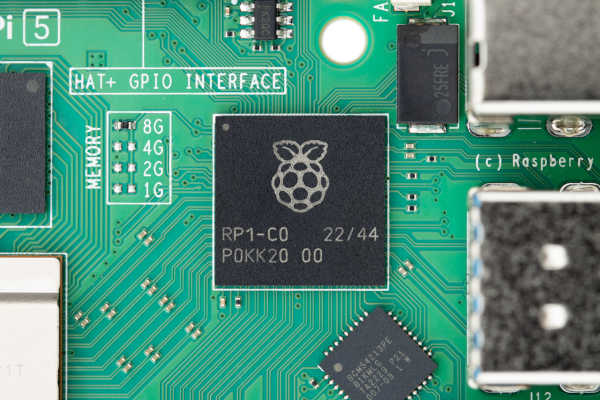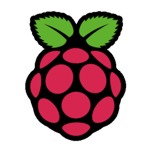| Raspberry Pi To Go Public - Are We Worried? |
| Written by Harry Fairhead | |||
| Wednesday, 22 May 2024 | |||
|
Raspberry Pi used to be the enthusiast's enthusiasm and this provided a base to expand into commercial applications. For some time now, some of the enthusiasts have been expressing concern that the company is looking more to commerce than fun and education. Will the proposed London IPO make things worse? We look for signs in the statement recently published by Raspberry Pi Ltd. Raspberry Pi has changed and the changes are a mixture of good and bad. It now has its own silicon in the form of the Pico, i.e. the RP2040 and the RP1 I/O controller chip, but to date all Pis, including the Pi 5, are heavily dependent on chips from Broadcom. What has changed is Raspberry Pi's focus on keeping control of it intellectual property and in limiting clones. The release of the Pi 5 was the most likely indication of the future direction and style of the company. Pi 5 uses the proprietary RP1 I/O chip and as the EXPECTED INTENTION TO FLOAT document affirms: "....are underpinned by unique, feature-rich and non-cloneable silicon (such as the RP1 I/O controller) that is unavailable to the broader market ..." and looking to the future: "Semiconductors are a key component of Raspberry Pi's core products. A strategic priority is to bring the design of semiconductor intellectual property blocks and complete semiconductor devices in-house, delivering tuned feature sets, improved unit cost structure, guaranteed component availability, and protection against cloning." So much for open source hardware. Keeping the RP1 proprietary essentially means that the Pi 5 is proprietary and cannot easily be cloned like all of the earlier devices have been. In the same way, unlike previous devices, the Pi 5's I/O has not been documented adequately. An interim hardware manual is available, but it is very incomplete. It is also clear that much more information has been provided to third-party hardware developers, as evidenced by the availability of Pi 5 add-ons that require in-depth knowledge of how things work.
This lack of documentation, and hence openness, seems not to have been extensively noted by the wider Pi community, despite comments about not being able to run low-level software or implement drivers. You can argue that the success of the early devices had a lot to do with the ability of enthusiasts to implement the low-level software of their dreams. My guess is that future custom software, like the RP1, will make it more difficult to create clones of future Pis, but also make it less easy to make use of them in the adventurous ways so characteristic of the previous generations of devices: "Raspberry Pi hardware products are supported by extensive collateral, in the form of software and documentation. This collateral is a key component of Raspberry Pi's moat against "workalike" hardware products offered by competitors." This raises the question of the replacement of Raspbian by Pi OS. Most users regarded this as just a change of name, but the original Raspbian was an independent 32-bit open source project run by Peter Green and Mike Thompson. The 64-bit Pi OS was created by Raspberry Pi and this provided an opportunity to add additional, closed-source, elements. The enthusiast and education sector was responsible for much of the growth of the Pi range of devices, but today: "Raspberry Pi's products are sold in three principal markets: the Industrial and Embedded market, which in 2023 accounted for 72 per cent of unit sales; the Enthusiast and Education market, which in 2023 accounted for 28 per cent of unit sales; and the semiconductor market, which Raspberry Pi entered in early 2021 with the launch of its first semiconductor product, the RP2040 microcontroller." Hence the sense of prioritising the Industrial and Embedded market during the recent serious shortages of product, something which still annoys some previously enthusiastic Pi supporters. "The community of Raspberry Pi enthusiasts, while a significant market in its own right, has driven Raspberry Pi adoption in the Industrial and Embedded space over time, as community members, many of whom have careers in engineering fields, take Raspberry Pi products with them into their professional lives." Will this engine of success continue in the future?
More InformationRelated ArticlesRaspberry Pi Looks To IPO In London Raspberry Pi Back In Stock - Well Almost Raspberry Pi Goes Public And For Profit? Raspberry Pi Chip Shortages Cause Price Hike Raspberry Pi Most Popular Industrial IoT Device! Pi Compute Module 4 - Time to Take Industrial Pi Seriously Raspberry Pi or Programming - What shall we teach the children? To be informed about new articles on I Programmer, sign up for our weekly newsletter, subscribe to the RSS feed and follow us on Facebook or Linkedin.
Comments
or email your comment to: comments@i-programmer.info <ASIN:B0CS2LRPSS> <ASIN:1871962854> <ASIN:1871962692> <ASIN:1871962862> <ASIN:1871962870> <ASIN:1871962811> <ASIN:187196279X>
|
|||
| Last Updated ( Tuesday, 20 August 2024 ) |



